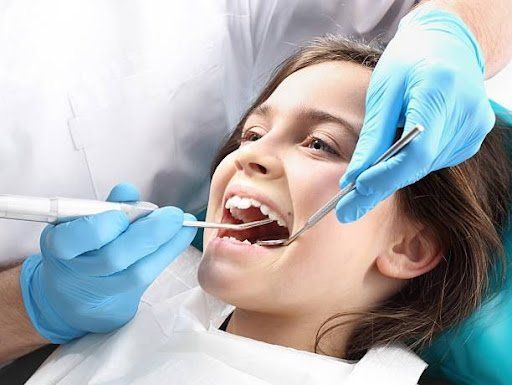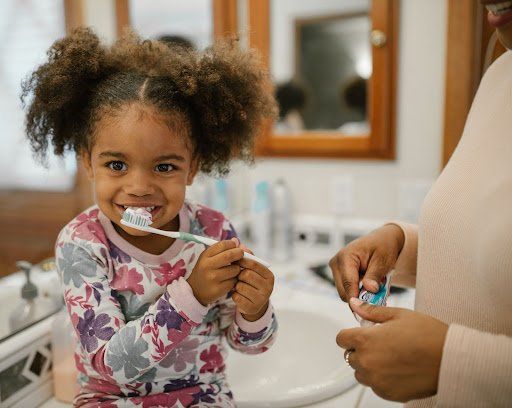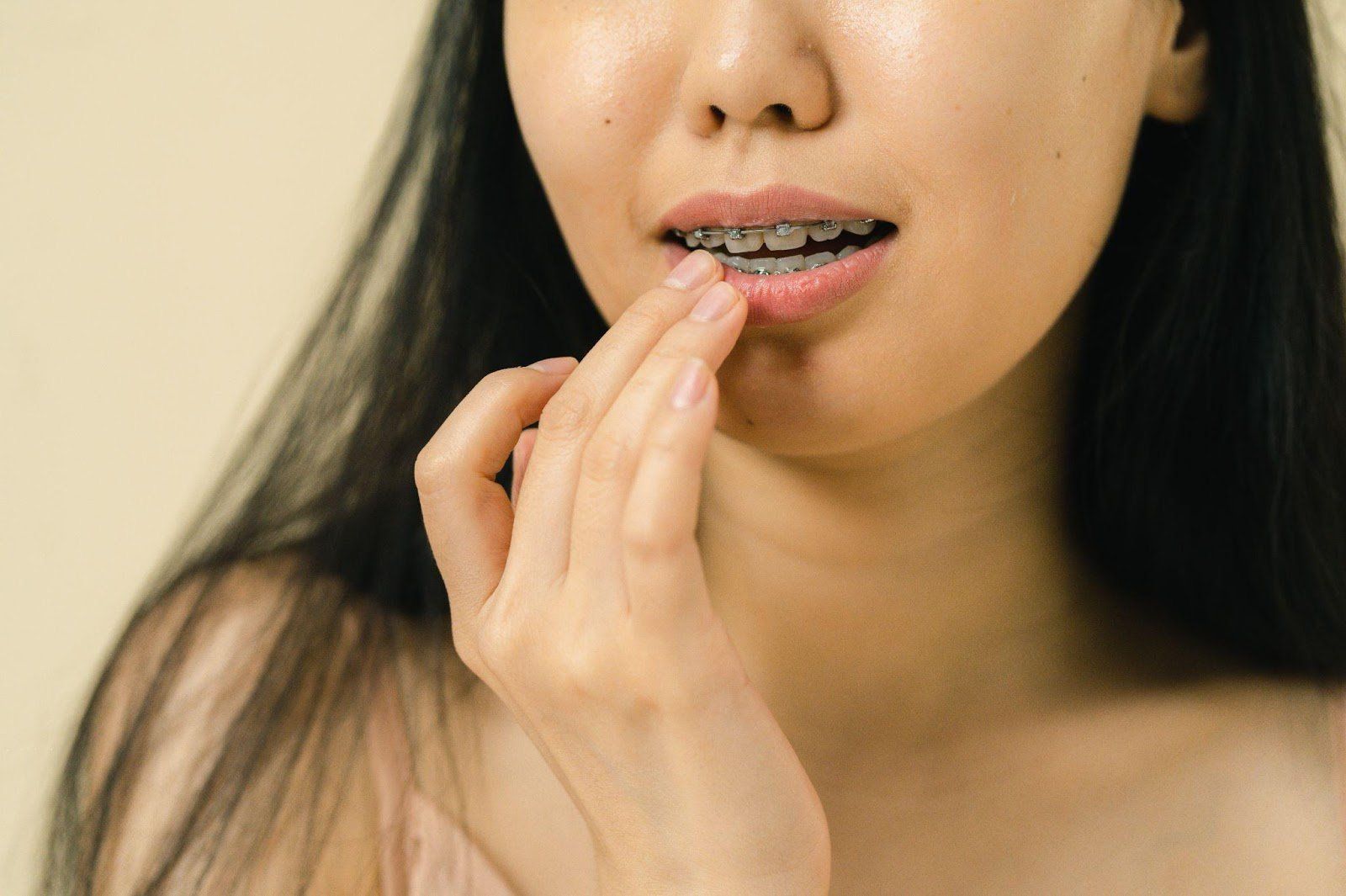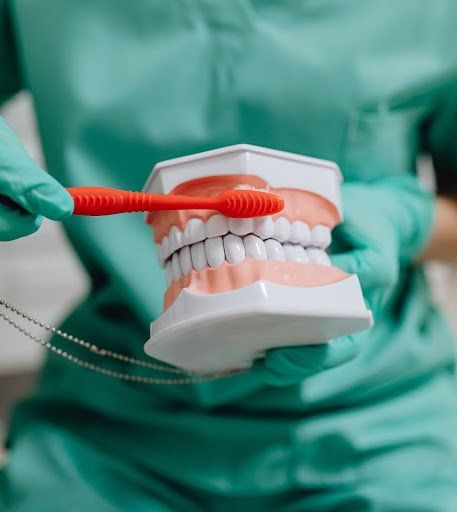Pediatric Dentistry: Definition and its Importance
- by Milena Marguenski
- •
- 28 Dec, 2021
- •

According to the American Academy of Pediatrics and the American Academy of Pediatric Dentistry, all children must see a pediatric dentist by the age of one.
You might be wondering, isn't it too early?
Is pediatric dentistry different, what is its importance, there are endless questions.
Well, let us discuss this in detail to get a clear-cut idea.
What is Pediatric Dentistry?
Pediatric Dentistry or Pedodontics is the branch of dentistry that deals with the oral health care of children right from birth to adolescence.
As the body develops and grows many changes take place. Some of the changes occur in the gums, teeth, and jaw. An average child develops their primary teeth in the first 6 months. By the age of 6, they generally lose the first set of teeth. These are replaced by secondary or permanent teeth. So there is a requirement for special care and treatment that comes under Pediatric Dentistry.
What is the role of a Pediatric Dentist?

Pediatric Dentists have both education and experience to treat dental problems in infants, children, and teenagers. They have to undergo 2 additional years of residency training in dentistry for children, infants, teens, and children with special needs.
Their job is to go for comprehensive oral health that includes
- Oral health examinations
- Cleaning and treatment of teeth
- Removal of tooth cavity
- Correction or straightening of teeth
- Repairing dental injuries if any
- Managing gum diseases that can lead to pediatric periodontal disease
- Detecting various oral health issues at early stages and treating them
- Habit counseling like thumb sucking
- Diet recommendation, etc
Why is Pediatric Dentistry Important?
By the age of 2, 1 out of 10 children has cavities. The percentage increases to 28% by the age of 3 and 50% by the age of 5.
Oral health plays a crucial role in the overall health of a child. The mouth is the entry point to the rest of the body. If it remains clean and disease-free, your child will develop and grow to the fullest. But if it remains filled with harmful bacteria, the possibility of developing certain diseases will be higher.
This is why consistent dental care is crucial. It will prevent your child from developing severe tooth disease.
Moreover, one of the skills that pediatric dentists have is to quickly evaluate the proper development of your child’s teeth and jaw. If they find any issue, they will take immediate action to fix it before it becomes a difficult job to handle. This prevents your child from severe pain and restrictions in the future.

A pediatric dentist will not only educate you but your child too on developing good habits that last for a lifetime. Some of the good habits are
- Regular brushing and flossing to keep excess bacteria under control.
- How to chew food properly?
- What to eat and what not?
- Proper technique to brush teeth, etc.


Brooklyn residents often wonder whether their tap water is helping or harming their dental health. One key factor in this debate is
fluoride
, a naturally occurring mineral added to public water supplies to prevent cavities. But does Brooklyn tap water really protect your teeth from decay? In this blog,
we’ll
uncover the truth about fluoride levels in NYC’s water and whether it plays a significant role in cavity prevention.

Sudden gum swelling is a dental condition that requires immediate attention, even if there is no pain. Gum health is often overlooked, but it is essential for overall oral well- being. Swollen gums may seem harmless at first, but they often indicate underlying issues that can worsen if left untreated.
Many people think of dental emergencies as situations with severe pain, but it's important to understand that discomfort isn't always a reliable sign of serious problems. Just because there is no pain doesn't mean there is no risk. Sudden gum swelling should be treated as an emergency , emphasizing the need for prompt professional evaluation.
Ignoring swollen gums can lead to more severe complications, affecting both oral health and general wellness. By understanding the seriousness of this condition and
seeking timely intervention, you can prevent further damage and ensure that your gums—and teeth—stay healthy and strong.
A skilled dental team can properly assess and treat any swelling. Prioritize your gum health by taking action when you notice unusual changes, protecting your smile for the future.
It's important to remember that maintaining good oral hygiene, including flossing your teeth regularly , can help prevent conditions like gum swelling. Additionally, if you're interested in improving your smile beyond just addressing gum issues, there are various options available in cosmetic dentistry that you should know about. Finally, if you're looking for ways to achieve a brighter smile, there are effective methods on how to get whiter and brighter teeth at home that you might find helpful.

If you thought that oral health problems are only for adults, then think again. The first teeth start appearing by 4 to 5 months of age. Then by the age of 3, kids have a full set of teeth. This is the time when parents have to be extremely careful about oral hygiene.
By the age of 6-7, the primary teeth start to fall out to make space for the permanent teeth. These permanent teeth are the ones that will stay with them for the rest of their lives. However, there are certain oral problems such as tooth decay, lip sucking, and early teeth loss.
Let’s take a look at these common oral health problems.

With the procedures’ popularity, several pharmaceutical companies launched their over-the-counter teeth whitening kits. This made the procedure more accessible and cheaper as compared to a professional session.
But which one is better? Let’s understand both the procedures first.





